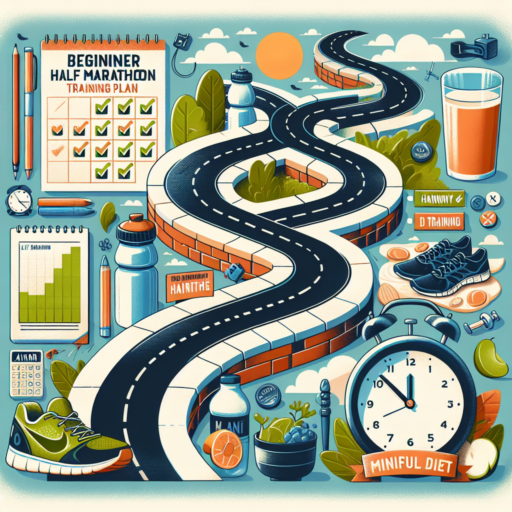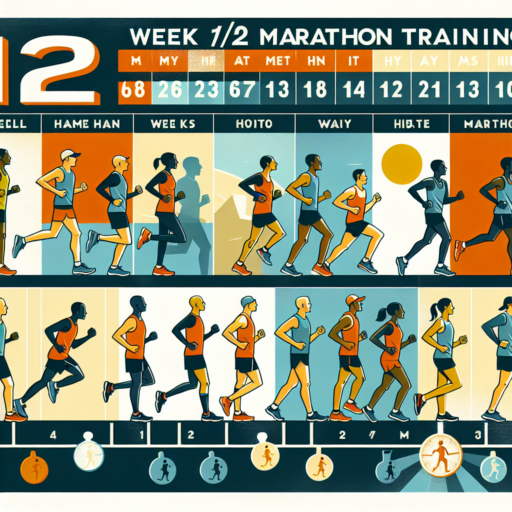No se han encontrado productos.
How many weeks should a beginner train for a half marathon?
For many beginners taking on the challenge of a half marathon, understanding the right amount of training time is crucial for success. Ideally, a beginner should aim for 12 to 16 weeks of training before race day. This timeframe allows for a gradual increase in mileage, ensuring that your body adapts appropriately to the stress of running longer distances. It also provides ample time to incorporate variety into your training, including speed work, long runs, and recovery days, which are essential for building endurance and avoiding injury.
Diving deeper into the training plan, it’s beneficial to break it down into phases. The first several weeks should focus on building a base, with runs becoming progressively longer. Following this, incorporating speed work such as intervals or tempo runs helps improve your pace and teaches your body to recover quickly. The last weeks leading up to the event should taper down in intensity and mileage, allowing your body to rest and recover in preparation for race day. Each phase serves to prepare you both mentally and physically for the challenge ahead.
Many beginners worry about the exact number of weekly miles. It’s important to remember that quality trumps quantity. Rather than focusing solely on hitting specific mileage, pay attention to how your body responds to training. Avoid the temptation to overtrain, as doing so can lead to burnout or injury, derailing your progress. Listening to your body and adjusting your training plan as needed can lead to a more enjoyable and successful training experience leading up to your half marathon.
Can you go from couch to half marathon in 12 weeks?
Embarking on a quest from the comfort of your couch to the exhilarating finish line of a half marathon in just 12 weeks is a challenge that many aspiring runners contemplate. While the task may seem daunting at first glance, with the right approach and dedication, it’s certainly within the realm of possibility. However, this ambitious goal requires a strategic and disciplined training plan that caters to both physical endurance and mental fortitude.
The journey from couch to half marathon is not just about pounding the pavement or clocking miles on the treadmill; it’s about gradually building your body’s resistance to the demands of long-distance running. A carefully crafted 12-week plan typically starts with a mix of walking and light jogging, slowly increasing the intensity and duration of runs as the weeks progress. This incremental approach helps minimize the risk of injury while maximizing the body’s adaptation to sustained physical activity.
Key Components of a Successful Training Plan
- Consistency: Regular training sessions are crucial for building endurance and strength.
- Rest and Recovery: Incorporating adequate rest days to allow the body to heal and adapt.
- Nutrition and Hydration: Following a balanced diet and staying well-hydrated to fuel the body for training and recovery.
- Mental Preparation: Cultivating a positive mindset to tackle the physical and psychological challenges of training.
While the goal of transitioning from couch to half marathon in 12 weeks is ambitious, it’s essential to listen to your body and adjust your training plan as needed. Every runner’s journey is unique, and what works for one individual may not suit another. Embracing the process and celebrating small victories along the way can make the journey as rewarding as crossing the finish line.
How fast should a beginner run a half marathon?
Embarking on the journey of running a half marathon is an incredible milestone for beginners, but one of the most common questions is about pace: how fast should a beginner run a half marathon? Generally, a good starting point is to aim for a pace that feels challenging yet sustainable over the entire 13.1 miles. It’s crucial to consider individual fitness levels, running background, and endurance capacity rather than aiming for a one-size-fits-all time.
For beginners, the focus should primarily be on completing the distance rather than competing against the clock. A conservative but realistic target pace might range from 10 to 12 minutes per mile. This pace is considered manageable for someone who is new to half marathons and has maintained a consistent training regimen leading up to the race. Employing a run/walk strategy can further help in managing this pace, ensuring that you do not overexert yourself too early in the race.
Listening to your body is key when determining the appropriate pace. If you can carry on a conversation or breathe comfortably while running, this indicates a sustainable pace. Incorporating pace runs or tempo runs into your training can also give you a better sense of what pace you can maintain over the half marathon distance. Remember, every runner’s journey is unique, and improvement comes with experience and consistent training over time.
How do I start training for a half marathon from nothing?
Embarking on the journey to train for a half marathon from scratch can seem daunting at first. However, with the right approach and mindset, it’s entirely achievable. The first step is to set a realistic goal. Understand your current fitness level and consider giving yourself a minimum of 12 to 20 weeks of training before the event, depending on your base fitness level. Remember, the key is gradual progression.
Next, it’s essential to devise a training plan. A balanced plan should include a mix of running, cross-training, and rest days to avoid burnout and injuries. Incorporating slow, long runs is crucial. These runs help in building endurance, which is fundamental for completing a half marathon. Also, add 2-3 shorter runs during the week to work on your pace and cardiovascular fitness. Cross-training activities, such as cycling, swimming, or yoga, can significantly augment your running performance by enhancing your overall fitness and reducing the risk of injury.
Nutrition and Hydration
Another critical aspect of your training regime should be nutrition and hydration. Proper fueling will significantly affect your energy levels, recovery, and overall performance. Emphasize consuming a balanced diet rich in carbohydrates, proteins, fats, and stay hydrated. Experiment with your nutrition during your training runs to find what works best for you on race day.




